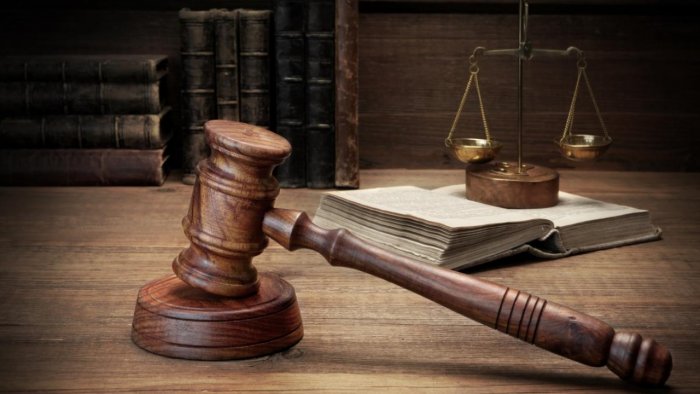
242 new Fast Track Courts set up in India in five years
For expeditious trial and disposal of cases, 242 new Fast Track Courts have been set up across the country in the last five years taking the total number to 838 as on 31st October 2022, as per information provided by Union Minister of Law and Justice Kiren Rijiju in parliament.
In a written reply to a question in the Rajya Sabha on 22nd December 2022, Rijiju informed that setting up of Fast Track Courts (FTCs) and its functioning comes within the domain of the State Governments who set up such courts as per their need and resources, in consultation with the respective High Courts.
As per information received from the High Courts,733 FTSCs including 413 exclusive POCSO Courts are operationalised in 28 States/UTs which have disposed a total of more than 1,24,000 cases since inception of the scheme. Total 1,93,814 cases are pending as on 31st October 2022, the minister informed.
As per information provided by the High Courts, 242 more FTCs have been setup up after 2017 (596 FTCs were existing as on 31st December 2017 which has increased to 838 FTCs as on 31st October 2022).
The Union Government started a Centrally Sponsored Scheme in October 2019 for setting up of 1023 Fast Track Special Courts (FTSCs) including 389 exclusive POCSO Courts in 31 States/UTs for expeditious trial and disposal of cases related to rape and POCSO Act, in pursuance to the Criminal Law (Amendment) Act 2018 and the direction of the Supreme Court of India in Suo Moto 1/2019 dated 25th July 2019.
The Scheme was initially for a period of one year spread over two Financial Years 2019-20 and 2020-21 at a total outlay of Rs 767.25 crore with Rs 474 crore as Central Share to be met from Nirbhaya Fund. In FY 2019-20, Rs 140 crore and in FY 2020-21, Rs 160 crore and in FY 2021-22, Rs 134.56 crore was released to States as Central Share.

The Cabinet further approved the continuation of the Scheme of FTSCs for two years i.e. up to March 2023 with a total budgetary outlay of Rs 1572.86 crore with Rs 971.70 crore as central share.
Each Fast Track Special Court comprises of 1 Judicial Officer and 7 Staff Members. Out of 31 States and UTs eligible, 28 have joined this scheme (Arunachal Pradesh, West Bengal and A&N Island are yet to join). As per information received from the High Courts,733 FTSCs including 413 exclusive POCSO Courts are operationalised in 28 States/UTs which have disposed a total of more than 1,24,000 cases since inception of the scheme. Total 1,93,814 cases are pending as on 31st October 2022, the minister informed.
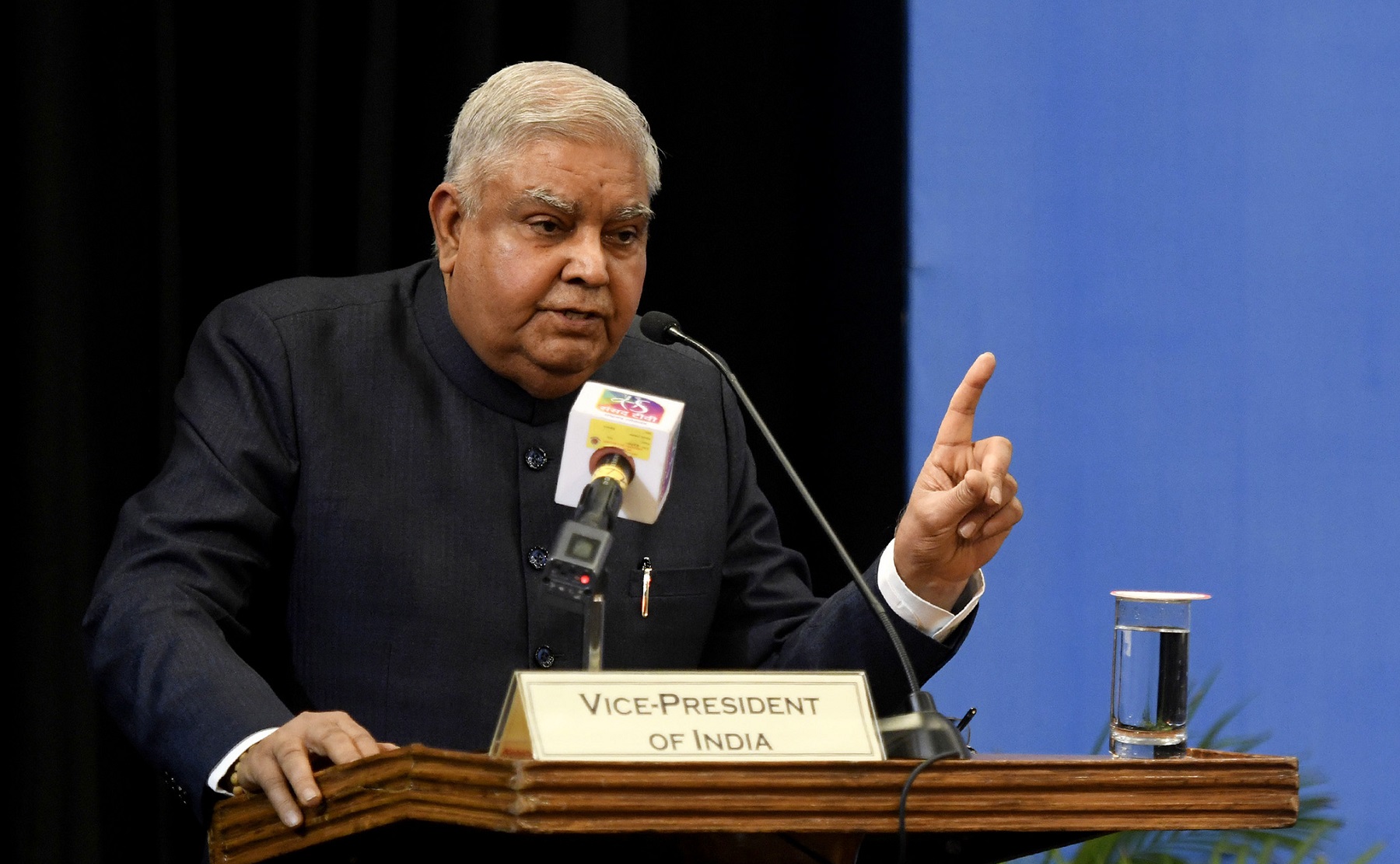
Vice President takes on Supreme Court over collegium system of Judges’ appointment
The government versus Supreme Court tussle over the appointment of judges in the Supreme Court and high courts has again come under the spotlight with Vice President of India Jagdeep Dhankhar raising the issue in his maiden address in the Rajya Sabha.
The National Judicial Appointments Commission (NJAC) Bill, passed unanimously by the Parliament, was “undone by the Supreme Court”, said Dhankhar, terming it is a “severe compromise of parliamentary sovereignty and disregard of the mandate of the people”.
The Bill which sought to overturn the collegium system of appointing Supreme Court and high court judges, was struck down by the Supreme Court.
Vice President said a law passed by Parliament, which reflects the will of the people, was “undone” by the Supreme Court and “the world does not know of any such instance”.
Citing provisions of the Constitution, he also said when a substantive question of law is involved, the issue can be looked into by the courts.
“Nowhere it says a provision can be run down,” Vice President Dhankhar said in the presence of Chief Justice of India DY Chandrachud.
Addressing the LM Singhvi memorial lecture in Delhi, the Vice President underlined that the Preamble of the Constitution mentions “We the people” and Parliament reflects the will of the people.
It means the power resides in the people – their mandate and their wisdom, he said.
Vice President Dhankhar referred to the NJAC Act, saying in 2015-16, Parliament was dealing with a constitutional amendment Act and as a matter of record the entire Lok Sabha voted unanimously.
In Rajya Sabha, it was unanimous, there was one abstention. “We the people – their ordainment was converted into a constitutional provision. Power of the people, which was expressed through a legitimate platform, that power was undone. The world does not know of any such instance,” he said.
The NJAC Act, which sought to overturn the collegium system of appointing Supreme Court and high court judges, was struck down by the Supreme Court which described it as unconstitutional.
“I appeal to the people here, they constitute a judicial elite class, thinking minds, intellectuals – please find out a parallel in the world where a constitutional provision can be undone,” he said.
Vice President Dhankhar had expressed similar sentiments at a Constitution Day event in Delhi on November 26.
He said he was “startled that after this verdict (NJAC), there was no whispering in Parliament. It was taken as such. This is too serious an issue”.
Referring to the doctrine of basic structure developed by the Supreme Court, he said “we have taken it as such”.
“But as a modest student of law, can parliamentary sovereignty ever be compromised … can a successive Parliament be bound by what has been done by earlier Parliament,” he said.
He said harmonious working of the Executive, the Legislature and the Judiciary is vital for the growth of democracy. “Any incursion, howsoever subtle, in the domain of one by another has the capacity to unsettle the apple cart of governance,” the Vice President said.

SCO pursues its internal policy based on the principles of mutual trust and benefit: Kiren Rijiju
The Shanghai Cooperation Organisation (SCO) pursues its internal policy based on the principles of mutual trust and benefit, Union Minister of Law and Justice Kiren Rijiju has said.
Speaking at the ninth meeting of ministers of justice of the SCO Member States, Rijiju said the SCO pursues its internal policy based on the principles of mutual trust and benefit, equal rights, consultations, respect for the diversity of cultures and aspiration towards common development.
He mentioned the e-Courts Project, conceptualized as a Mission Mode Project of the Government of India, as a part of the National e-Governance Plan based on the “National Policy and Action Plan for Implementation of Information and Communication Technology in the Indian Judiciary”, established after long-standing efforts on the parts of our government during the difficult times of Covid 19 Pandemic and helped the courts to perform all the task of Justice Delivery in virtual mode.
The project is under implementation since 2007 under the joint partnership of Department of Justice, Ministry of Law and Justice, Government of India and the e-Committee of the Supreme Court of India. It is aimed at transforming the judicial system of the country by ICT enablement of courts and enhance the judicial productivity, both qualitatively and quantitatively for making the justice delivery system accessible, cost effective, transparent, accountable, efficient and time bound. The services under the project cater to all key stakeholders including the judiciary, High Courts, The District & Subordinate Courts and the citizens/litigants/lawyers/advocates.
He also highlighted Alternative Dispute Resolution (ADR) mechanism, which offer a faster, transparent and accessible option to the citizens of the country. In fact, they were one of the major factors to achieve “Ease of Doing Business” by improving dispute resolution with regard to contract enforcement among the national or global stakeholders. Another very important ADR mechanism is Mediation. Mediation is a voluntary dispute resolution process. To have a consolidated law on mediation, the Government of India has introduced the Mediation Bill, 2021 in the Parliament. He apprised the gathering of the high priority, the Government has accorded to resolving disputes through ADR; framing business facilitating laws and rules, including Commercial Courts Act and Arbitration Laws with a view to make India a preferred destination for investment and businesses.
As part of activities of Justice Ministers’ Forum, the Minister congratulated all Ministers of the SCO Member States for their efforts towards achieving the goals of the SCO and assured India’s full cooperation in the future as well. Also, in this emerging era of digitization and new possibilities, He called upon all the SCO partners to commit to promote technology in all fields and adopting, developing new mechanisms like ADRs in the Legal System of all the SCO Member States. Earlier, the Experts Working Group discussed issues related to the provision of legal services to individuals and/or legal entities, and stressed on the need of the development of information technologies in the provision of services.
Emphasizing the mutual understanding reached on the development of the legal systems of the SCO Member States, taking into account the agreements and tasks provided for in the SCO Development Strategy until 2025, the Ministers of (Law and) Justice of the SCO Member States declare the following:
1. To carry out interaction between the Ministries of (Law and) Justice of the SCO Member States, contributing to the preservation and expansion of mutual trust, good-neighborliness and friendship between the SCO Member States.
2. To continue work on the implementation of the Cooperation Agreement between the Ministries of Law and Justice of the SCO Member States, signed in Dushanbe on August 18, 2015.
3. To continue strengthening cooperation between the Ministries of (Law and) Justice of the SCO member States in order to promote the development of legal systems.
4. To organize mutual visits of representatives of the Ministries (Law and) Justice of the SCO Member States, hold SCO regional conferences, bilateral symposiums, seminars, workshops and joint courses on topical legal issues and exchange experience in this field.
5. To continue the activities of Expert Working Groups on forensic expertise and legal services. The Ministers of (Law and ) Justice and senior officials / experts from the Ministries of Law & Justice of India, Kazakhstan, China, Kyrgyz Republic, Pakistan, Russian Federation, Tajikistan and Uzbekistan participated in the three days’ deliberations. The next Meeting of the Ministers of Justice of the SCO Member States will be held in 2023 in China.

Govt emphasising to enhance the use of Hindi in legal education and proceedings: Kiren Rijiju
The Government is emphasising to promote and enhance the use of Hindi and other regional languages in Legal Education and to carry out the legal proceedings of the Supreme Court, High Courts and the other judicial wings, Union Minister of Law and Justice Kiren Rijiju has said.
We are digitising 65000 words Legal glossary and make them available to public and creating an online platform to crowd–sourcing of the coining of legal terminology for Indian Languages, Rijiju said in a written reply in Lok Sabha, the lower house of Parliament, on December 9.
Further, this Ministry is in the process to Identify frequently used words in the legal documents and creating a transitive vocabulary/common core vocabulary by coining words from common roots which would be adaptable by all the Indian languages so that the translation of legal documents from one Indian language to another Indian language would be easier, he said.
According to Rijiju, the Ministry of Law and Justice is planning to convene a meeting of Vice Chancellors of Law Universities, representatives of Bar and Judiciary to prepare Ten Year Perspective action Plan for Promotion of Indian Languages in Courts and Legal Education.
Further, a committee under chairmanship of Hon’ble (Retd.) Chief Justice of India Sh. Bobde has been constituted by the BCI to recommend measures to enhance the use of Hindi and other Regional languages in Legal Education.
The Ministry of Home Affairs has informed that enabling Constitutional and Legal provisions in this regard are already in place, the minister said.
As per Article 348 of the Constitution and Section 7 of the Official Language Act, 1963 there are provisions of optional use of Hindi and other (Languages included in the 8th Schedule of the Indian Constitution) in the proceedings and judgments etc. of the courts. Under the aforementioned provisions, optional use of Hindi in the proceedings of High Courts of Rajasthan, Uttar Pradesh, Madhya Pradesh and Bihar was authorised in the year 1950, 1969, 1971 and 1972 respectively.
New education policy also emphasises the need for promoting Hindi and other regional languages in Legal and other technical education.
The National Education Policy, 2020 in its para 20.4 stated that “Legal education needs to be competitive globally, adopting best practices and embracing new technologies for wider access to and timely delivery of Justice. At the same time, it must be informed and illuminated with Constitutional values of Justice -Social, Economic, and Political and directed towards National reconstruction through instrumentation of democracy, rule of law, and human rights. The curricula for legal studies must reflect socio-cultural contexts along with, in an evidence-based manner, the history of legal thinking, principles of justice, the practice of jurisprudence, and other related content appropriately and adequately. State institutions offering law education must consider offering bilingual education for future lawyers and judges in English and in the language of the State in which the Institution is situated”.
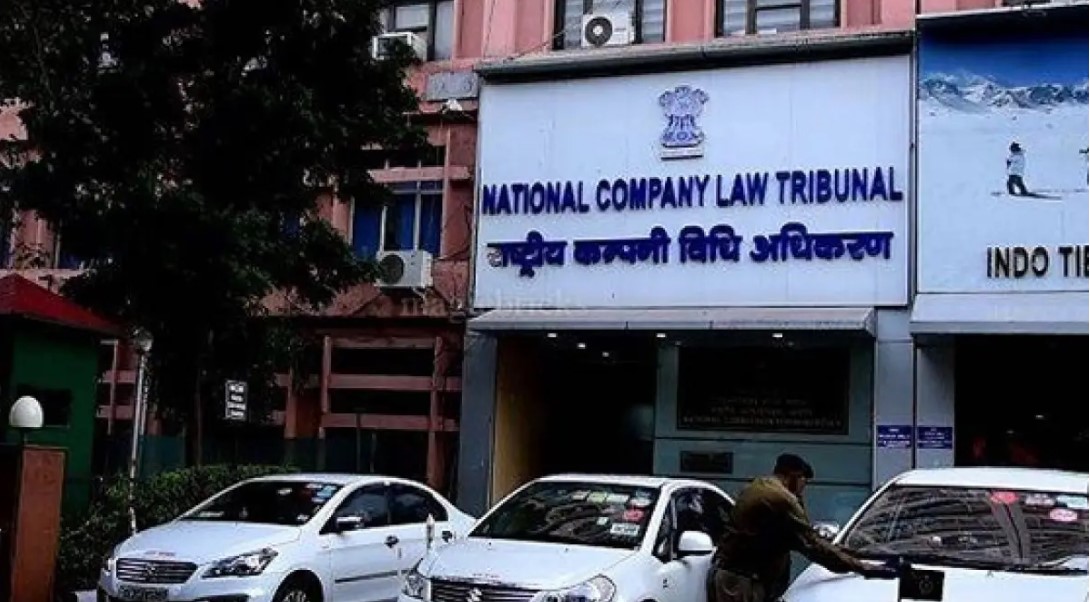
Govt appoints 15 judicial, technical members at Company Law Tribunal
The government has appointed a total of 15 judicial and technical members at the National Company Law Tribunal (NCLT), which is grappling with a shortage of judges.
The NCLT adjudicates matters related to the Insolvency and Bankruptcy Code (IBC) and companies law.
As many as 9 judicial members and 6 technical members have been appointed to the NCLT, according to an official order.
These members have been appointed for a period of five years from the date of taking charge or till they attain the age of 65 years, whichever is earlier.
Former Madras High Court Judge Justice (Retd) T Krishna Valli, former Allahabad High Court Judge Justice (Retd) Vikas Kunvar Srivastav, Senior Government Advocate at the Department of Legal Affairs Mahendra Khandelwal, CAT Judicial Member Bidisha Banerjee, advocates Praveen Gupta and Ashok Kumar Bhardwaj are among the judicial members.
Others are Retd District Judge – Punjab Kuldip Kumar Kareer, Retd District Judge – Gautam Budh Nagar Vishesh Sharma and District Court Judge in Commercial Court, Delhi Higher Judicial Service Sanjiv Jain.
The technical members are Chartered Accountant Prabhat Kumar; UCO Bank’s former Executive Director Charan Singh; former Central Board of Direct Taxes (CBDT) Member Anu Jagmohan Singh; Retd Principal Chief Commissioner of Income Tax Ashish Verma; former Director and Head of AML Compliance at CitiBank India Madhu Sinha; and former Secretary at the Department of Animal Husbandry and Dairying Atul Chaturvedi (IAS (Retd)), as per the order dated November 5.
The NCLT has a total of 28 benches, with a sanctioned strength of 63 members. This includes 31 each from the judicial and administrative sides along with its president, who heads the principal bench in New Delhi.
In October, NCLT President Chief Justice (Retd) Ramalingam Sudhakar said the scope of adjudication under IBC has been rewarding and result oriented despite “several apparent and noticeable shortcomings like periodical reduction of members, presently 28 out of 63, and infrastructure which requires to be improved in metropolitan cities like Mumbai, Delhi, Chennai and Kolkata.”
The tribunal is also facing shortage of support staff, including court masters, officers, assistant registrars and stenographers.
(Source: PTI)

Filing of a false complaint by a spouse amount to matrimonial cruelty
Dismissing the plea of a woman seeking to set aside order of a family court which allowed divorce petition of her husband, the Punjab and Haryana High Court has said, “Cruelty coupled with the fact that the marriage has become dead and irretrievable, in such circumstances, no direction can be given to the husband to stay together.”
As per the case, the marriage of the appellant (woman or wife) was solemnised with the respondent (man or husband) in December, 2005. A criminal case was registered in Haryana against the man by his wife in 2009 for cruelty which was disposed of by court in December 2013. The man was acquitted of the charges levelled against him. After the acquittal, when the man went to bring his wife back, she refused to go with him. She was rude and her conduct was harsh and intolerable. He was subjected to mental torture and cruelty as the woman deserted him with an intention of not joining him. Hence, the man filed the divorce petition before the family court in Jind.
But the woman moved the high court appealing against the judgment and decree passed by the Jind family court, wherein a petition filed by her husband under Section 13 of the Hindu Marriage Act, 1955, (divorce plea) was allowed.
The woman stated that her husband and his family members were greedy and taunted her as she belongs to a very poor family. After five days of her marriage, the husband and his family members beat her up for not bringing more dowry. Thereafter, her husband left home without giving any reason and was away for six months living in Panipat, leaving her all alone at the mercy of his parents. The woman stated that she did not leave her matrimonial home on her own free will, but was shown the door without any reasonable cause. Her in-laws subjected her to mental cruelty, it was contended by the appellant (wife).
Counsel for respondent (husband), Senior Advocate Sumeet Goel, placed on record judgment of July 2015 passed by the Jind district judge, whereby in an application under Section 24 of the Hindu Marriage Act, 1955, the respondent (husband) was directed to make payment of Rs 3,000 per month and Rs 5,500 as one-time litigation expenses to the appellant (wife).
The bench of Justice Ritu Bahri and Justice Nidhi Gupta, after hearing the matter, held that during the pendency of the instant appeal, the parties were referred to mediation which failed. “In the present case, the couple does not have any child. The husband was acquitted of all the charges vide judgment dated December 7, 2013, in criminal case… Filing of false complaint by the spouse would amount to matrimonial cruelty, and divorce can be granted…on this ground.”
(Source: The Indian Express)
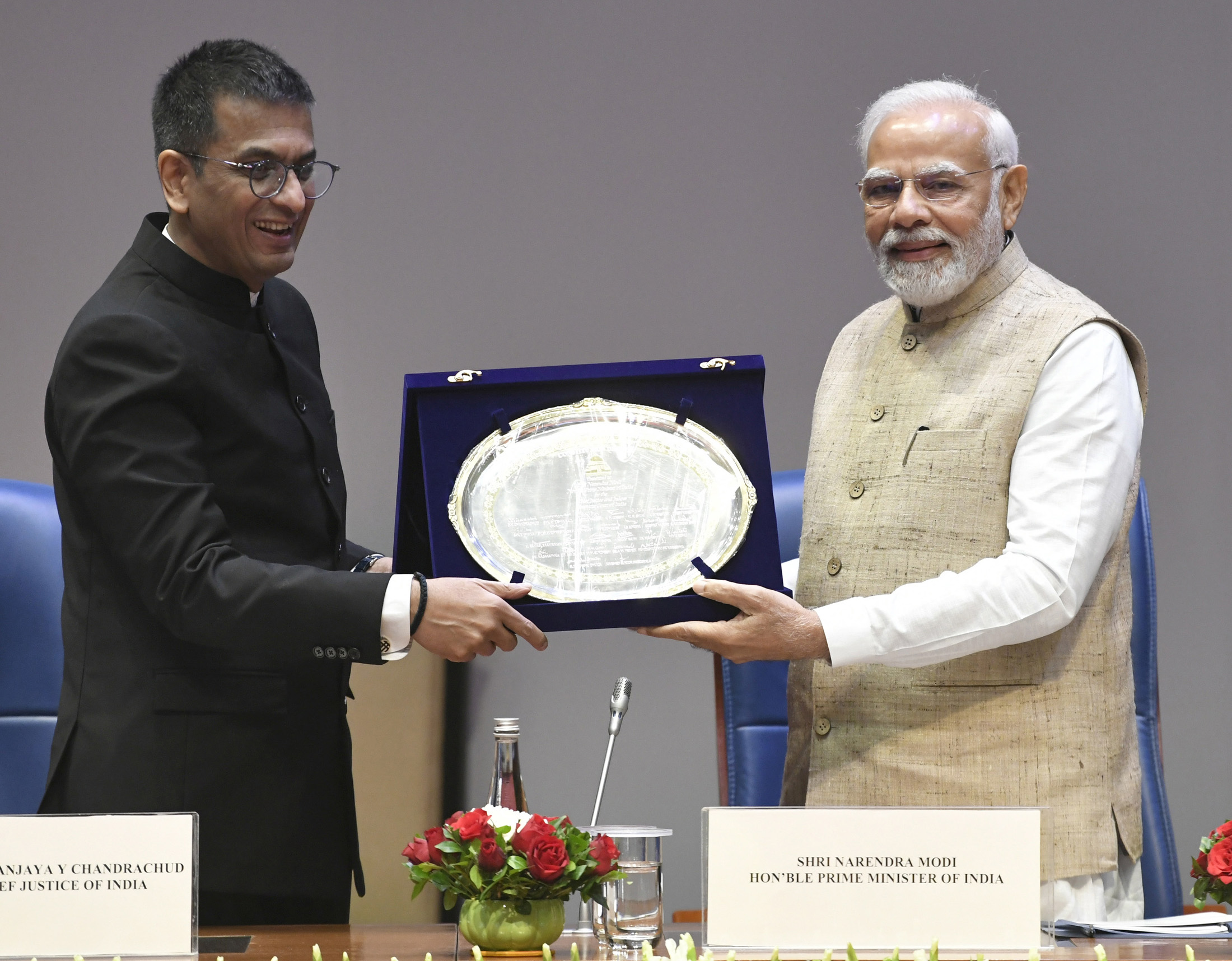
Nowadays it has become a fashion to comment on earlier decisions of the Collegium: SC
Nowadays it has become a “fashion” for the former judges to comment on earlier decisions of the Collegium on the appointment of judges in the Supreme Court and high courts, the Supreme Court has said adding that the apex court was the “most transparent institution”.
“We do not want to comment on anything said by former members [of the Supreme Court Collegium]… We don’t want to say or comment on them at all… Nowadays it has become a fashion to comment on earlier decisions when they were part of the Collegium,” Justice M.R. Shah, leading a Bench, said.
The Supreme Court on December 2, 2022 said it had become a “fashion” for its former judges to comment on earlier decisions of the Collegium when they were part of it while adding that the apex court was the “most transparent institution”.
“We do not want to comment on anything said by former members [of the Supreme Court Collegium]… We don’t want to say or comment on them at all… Nowadays it has become a fashion to comment on earlier decisions when they were part of the Collegium,” Justice M.R. Shah, leading a Bench, said.
The oral observation came during the hearing of an appeal filed by activist Anjali Bhardwaj, who had applied under the Right to Information (RTI) Act to the Supreme Court for a copy of the agenda, decision and resolution of a Collegium meeting held on December 12, 2018.
The Supreme Court Public Information Officer (PIO) had said the information was confidential and disclosure would amount to contempt of court. The First Appellate Authority and the Central Information Commission found that though “certain decisions” were taken on December 12, the “required consultation” did not take place and hence there was no resolution. In appeal, the Delhi High Court had concluded that the Collegium decision was probably “verbal” and did not “crystallise” into a written record to be termed ‘information’ under the RTI Act.
On Friday, advocate Prashant Bhushan, for Ms. Bhardwaj, referred to an article by Justice Madan B. Lokur, a former Supreme Court judge, affirming there was an agenda of the Collegium meeting held on December 12 and “certain decisions” had indeed been taken.
Mr. Bhushan further pointed to excerpts in the autobiography of former Chief Justice of India Ranjan Gogoi about the December 12 meeting. Justice Gogoi had headed the Collegium at the time and Justice Lokur was part of that Collegium. The meeting was held to consider names for appointment to the Supreme Court and transfers of Chief Justices of High Courts. Justice Lokur had retired when the court went into winter recess soon after the December 12 meeting.
A newly-constituted Collegium, with Justice (now retired) Arun Mishra joining in, had met on January 10, 2019. A resolution published of the January 10 meeting had recorded that decisions were taken in the previous meeting, but intervening winter holidays and the reconstitution of the Collegium had interrupted consultations. The January 10, 2019 Collegium resolution had recommended Justices Dinesh Maheshwari and Sanjiv Khanna as Supreme Court judges.
A public debate in the media had ensued at the time on why the Collegium had “dropped” its December 12, 2018 proposal to recommend Delhi High Court Chief Justice Rajendra Menon and Rajasthan High Court Chief Justice Pradeep Nandrajog (both are now retired) and, within days, pick then Karnataka High Court Chief Justice Maheshwari and Justice Khanna, a Delhi High Court judge. Both Justices Maheshwari and Khanna are now serving apex court judges. Justice Khanna is in line to be the next Chief Justice of India according to the seniority norm.
‘General impression’
Mr. Bhushan said a “general impression” may arise that the Supreme Court, which had once upheld the right to information as a fundamental right in several of its judgments, was now “backtracking”.
“Transparency requires that whatever decision, if it is in writing, be disclosed to citizens. If the decision is not in writing, let the PIO say so,” he argued. Mr. Bhushan asked if the decision had not been converted to writing, why did the January 2019 resolution say that “a decision was taken”.
“The Supreme Court is not backtracking at all. We are the most transparent institution… An oral decision may have been taken [in the December 12, 2018 Collegium meeting]. You are not entitled to the oral decisions… The decision may not have been converted to writing… So many things could have been discussed in the Collegium meeting,” Justice Shah, who is a member of the current Collegium headed by Chief Justice D.Y. Chandrachud, responded.
The court reserved the appeal for judgment. The past weeks had seen Union Law Minister Kiren Rijiju launch a vocal and very public criticism of the “opacity” in the functioning of the Collegium.
(Source: The Hindu)
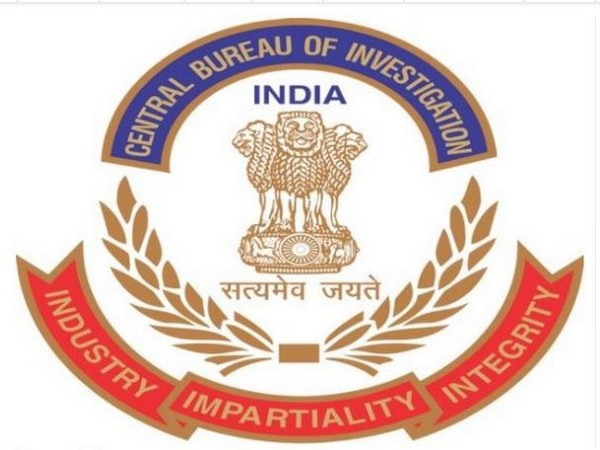
The world has changed, the CBI must also change, says Supreme Court
The Central Bureau of Investigation (CBI) must keep up with changing world, the Supreme Court has said underlying the need for reforms in the top investigation agency of India.
“The world has changed, the CBI must also change,” the Supreme Court said on 5th December as it heard a plea seeking guidelines for safeguarding academic work that is stored in digital devices seized by investigative agencies.
The remark by Justice S K Kaul came after the other judge on the bench, Justice A S Oka, said he had seen the CBI manual and that “it requires a lot of updation”.
In its affidavit filed in response to the plea, the Centre has said the issue can be addressed by adherence to the CBI Manual, 2020, which it said contains a detailed SOP besides safeguards regarding the seizure of electronic evidence.
The CBI manual “has various provisions dealing with the present subject matter and would substantially allay the apprehensions of the petitioner while balancing the competing legitimate state interest within the confines of Indian Constitutional and statutory framework”, the Centre added. The court fixed the matter for hearing next on February 7.
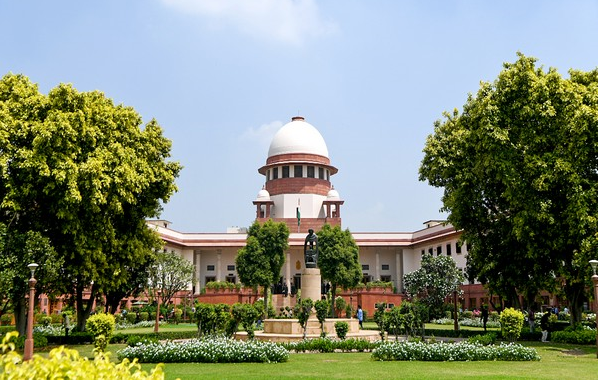
Purpose of charity should not be religious conversion: Supreme Court
Charity or good work is welcome but if it is intended for religious conversion then it is a serious issue, the Supreme Court of India has said, taking a tough stand on forced religious conversion.
Hearing a plea filed by advocate Ashwini Kumar Upadhyay on 5 December 2022, a bench of Justices M R Shah and C T Ravikumar noted that forced conversion is against the Constitution.
“The purpose of charity should not be conversion; every charity or good work is welcome, but what is required to be considered is the intention,” the court said.
The court was hearing a petition filed by advocate Ashwini Kumar Upadhyay seeking direction to the Centre and states to take stringent steps to control fraudulent religious conversion by “intimidation, threatening, deceivingly luring through gifts and monetary benefits”.
The Centre told the court it is collecting information from states on religious conversion through such means.
Appearing before the bench, Solicitor General Tushar Mehta sought time to furnish detailed information on the issue.
“We are gathering information from the states. Give us a week’s time,” Mehta said. He said statutory the regime will determine whether a person is converting due to some change in belief.
The top court acknowledged forced religious conversion is a very serious matter.
“Do not take it as adversarial. It is a very serious issue. Ultimately it is against our Constitution. When everyone stays in India, they have to act per the culture of India,” the bench observed.
The apex court will now take up the matter on December 12.
Forced religious conversion may pose a danger to national security and impinge on religious freedom of citizens, the top court had said recently, and asked the Centre to step in and make sincere efforts to tackle the “very serious” issue.





